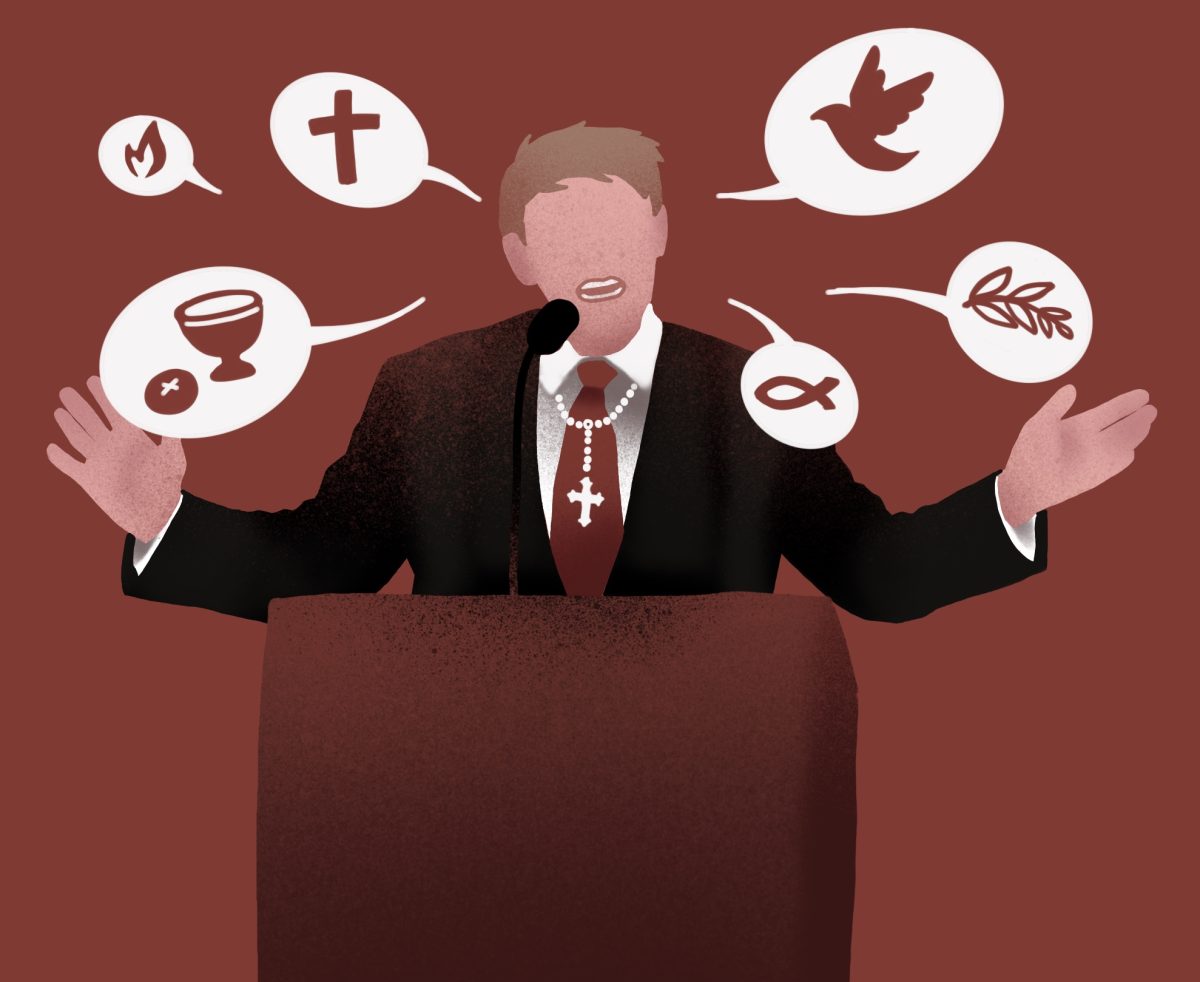America is commonly dubbed as the land of the free, built on the notions of liberty and justice for all. Democracy and inclusivity have shaped both the American government and its core values. In spite of this belief, politicians’ individual religions come to play in numerous facets of governmental policies. This can be seen from the revised pledge of allegiance in 1954 to recent anti-transgender laws passed in 2023. These actions ultimately contradict the common stance that America maintains a secular government with a separation between church and state.
The Separation of church and state is an important value to uphold. James Lankford, U.S. Senator from Oklahoma, stated the importance of separation helps to prevent bias and discrimination in the U.S. government because laws, while they can be subjective, must remain logical and democratically-oriented. Such circumstances are necessary primarily so that all laws are fair and just – that they fall in line with what the common public deems as moral.
The benefits for the people and the structure of society must always be taken into account when laws are formed. Political leaders should also always be individuals who represent the common public. Thus, the laws they create should stand for and exercise the rights of the common public, one important one being religious freedom.
Despite this, religion seems to be corrupting many facets of modern American government, not accurately representing the mass public’s general beliefs. The Trans Legislation Tracker reported a demographic of 85 anti-transgender bills passed and 583 proposed as of 2023. A few bills like the Arizona Bills SB1001 and HB1700 advocate, respectively, for school staff to be allowed to override students’ preferred pronouns and the school to ban books that validate certain gender and pronoun concepts.
Transgender discrimination in the bills is not supported by any logical bases other than the subject’s perceived impropriety. The perception is predominantly due to its non-conformity to the Christian belief that biological men and women are the only two valid genders. The bills themselves only lead to leaving America’s youth uneducated on information helping them both understand and explore their own identities and that of their peers. Furthermore, these conservative ideals are not supported by common beliefs – they do not represent the public’s opinion and can thus be rendered semi-autocratic.
According to Pew Research Center, the majority of Americans are in support of transgender individuals’ rights, as per scientific reasoning, and believe it is important to protect them from discrimination, which is promoted by a multitude of religion-based agendas. With this in mind, it is difficult to understand how exactly such bills respect public opinion and the minds of the nation. In the end, it appears the answer is quite obvious: they do not.
Today’s government, while preaching religious inclusivity, in turn fails to uphold it in numerous aspects. The National Constitution Center reported that the U.S. Supreme Court is almost entirely Christian, with most being Catholic. In extension, the Court appears to consistently rule in favor of religious-aligning verdicts, with more than eight in ten U.S. adults, in both political parties, disapproving of the action. The afformented statistic alone demonstrates the absurdity of modern government.
With such a large percentage of people disapproving, one could even assume the system itself is not as democratic as it claims to be. The Justices of America act as the highest form of court and should be the closest to perfection in terms of what an American court should aim to be, but they are not. This fact only serves to propose the chilling possibility that the courts under it may be even more religiously corrupt than that of their prime example.
One might find it difficult to understand how government authorities are meant to be subjective when religion is part of their identity, thus often blending with their opinion. This concern can easily be refuted by addressing the systemic problems that corrupt governments rather than the individuals themselves.
Biased policy is not a result of individual belief but the system that allowed them to be considered viable in the first place. The government of today is not nearly as strict as it should be with instilling laws that prevent the blending of religion and government. Their laxity in turn promotes an agenda of corruption within all its members and laws, allowing partisan religious policy to pervade a democratic nation.
Ultimately, in order to solve this problem, leaders of today must step back and focus on the problem of corruption itself and its large presence in government. Politicians must address their biases head on with extreme and precise changes to slowly but surely better the American government in every aspect.



Radhika • Nov 19, 2023 at 5:50 am
I want to tell you how much I appreciated your clearly written and thought-provoking article.
Thank you Sonia for your thorough research and clear writing.
Sam • Nov 18, 2023 at 9:52 pm
Awesome article. Great job at doing research and finding substantiating facts. Refreshing to see such deep thinking in someone so young !!!